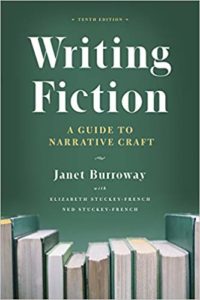The title of this post is a little deceptive. There is a musicality to great writing, isn’t there? Words that soar and sing. Sentences that ebb and flow. Paragraphs that lead you in one direction and then plop you down in a foreign land. A beautifully written book is “word music”.
But that’s not all.
Of all the things a writer needs to think about when crafting a story, voice is most closely tied to diction and syntax. Which means that beyond the musicality – the gorgeous words and lyrical writing – the writer has to be aware of what kind of word choices and sentence structure will convey the character’s “truth”: truth in who they are, and in what they feel.
Voice, in other words, stems directly from character. And character is driven by emotion.
Yup, there we are again – emotion.
What, Exactly, Is Voice?
Point of view (POV) is the way we describe who is telling the story. POV can be written in first person, third person limited, third person omniscient, and rarely, second person. (Another discussion for another post.)
Voice, on the other hand, is a subtle combination of tone, character, and narrative style. It’s difficult to find a straightforward craft book guide to voice, but the closest I’ve seen is in Writing Fiction: A Guide To The Narrative Craft. I highly recommend this deep and intense book to the student of the craft – read it carefully and you’ll learn as much here as you would as you would in an entire MFA program.
I gave a presentation a while back in which I go into much more detail about voice, and you can download a copy of it here: Crafting Voice. There’s a lot more to digest on this subject than I have room for in this post, although I also wrote another post a while back that includes some exercises and you can find it here.
However, I can say that the narrative voice of a piece of writing should reflect three aspects of your work:
- Who is my character? What kind of person is he or she? How does she talk, act, and think?
- What is the tone or approach my book should take toward my subject matter? Am I trying to create a contemporary high school scene, or a historical drama, or a high fantasy?
- What is the underlying theme of my novel and what impression do I want the reader to feel throughout the reading? What emotion do I want my reader to take away after finishing the book?
Voice Is All About Emotion – The Character’s and The Reader’s
Once again, we arrive back at what I think is the heart of great story-telling: knowing the emotional drivers for your characters, and knowing what emotions you hope to evoke in your readers. The way to channel character emotions and arouse emotions in your readers is partly through your choice of words – through the narrative voice. In addition, you must keep in mind the kind of story you’re trying to tell, to capture the right tone. And finally, your theme – the message you want to convey to your reader – also contributes to the emotional response you’ll create in your reader.
Whether you’re writing a serious futuristic novel or a contemporary rom-com, your word choice must reflect the emotional heart of your story, so that your reader will absorb and relate to it at a subconscious level. And your word choice will also be driven by how your character feels and what she knows about life.
Thoughts? Questions?

Excellent, post, Janet! There are so many factors that go into the voice of a story, as you pointed out. Have you ever found that the voice just isn’t working for a story? I remember submitting a novel to an agent who said the voice just wasn’t working for him.
Yes – it’s really important to get it right. One exercise I use is to change from first person to third or vice versa. Going into first person is often the way of getting deeper inside the character. And then making sure the age of the character is right for the vocabulary (and vice versa!)